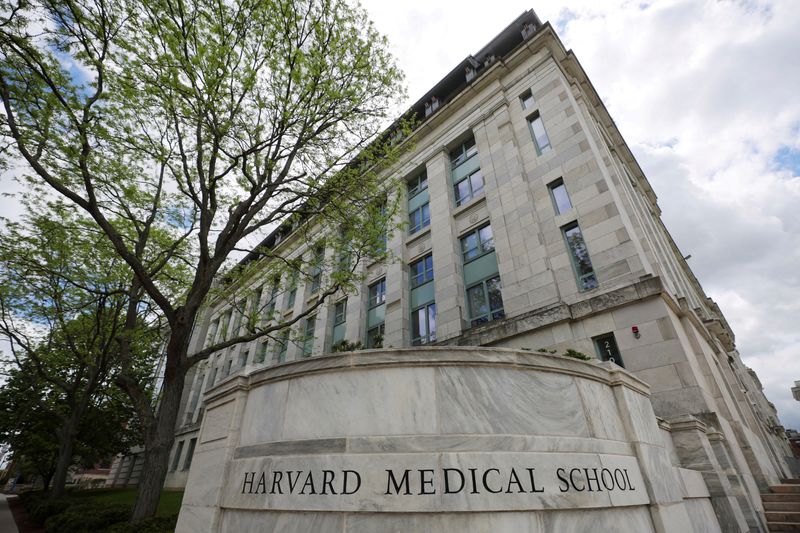Harvard wins dismissal of families’ lawsuits over morgue scandal

By Nate Raymond
BOSTON (Reuters) – A Massachusetts judge on Monday dismissed lawsuits by families accusing Harvard of mishandling the bodies of loved ones that were donated to its medical school and whose parts were then sold on the black market by the former manager of its morgue.
Suffolk County Superior Court Judge Kenneth Salinger in Boston ruled the lawsuits failed to plausibly allege Harvard Medical School (HMS) failed to act in good faith in handling the bodies or was legally responsible for ex-morgue manager Cedric Lodge’s “appalling” alleged conduct.
“To the contrary, Lodge’s horrifying scheme was allegedly undertaken for purely personal gain, and could not possibly have been of any benefit to HMS or furthered the interests of HMS in any way,” Salinger wrote.
The judge said as a result, the families had not put forward allegations that, if true, could overcome the immunity Harvard enjoyed under the state’s Uniform Anatomical Gift Act, which governs the donation of human bodies for research.
He also dismissed related claims against two employees who ran Harvard’s anatomical gift program, Mark Cicchetti and Tracey Fay.
Kathryn Barnett, a lawyer for the families at Morgan & Morgan, promised an appeal. “These families have had to relive the trauma of losing their loved ones many times over, and we strongly believe that they deserve a day in court,” she said in a statement.
Harvard did not immediately respond to a request for comment.
The 12 lawsuits were filed after federal prosecutors brought charges in June against Lodge and five others accused of buying and selling human remains stolen from Harvard Medical School and an Arkansas mortuary.
Prosecutors said Lodge from 2018 through 2022 would at times let potential buyers into the school’s morgue to examine cadavers and select what parts to buy. The buyers mostly resold the body parts, prosecutors said.
They said Lodge also transported stolen remains to his home in New Hampshire, where he and his wife sold them to others. They also shipped stolen remains to people out of state, prosecutors said.
The Lodges pleaded not guilty to conspiracy and interstate transport of stolen goods charges. They and two other defendants are slated to face trial in federal court in Williamsport, Pennsylvania, on April 1.
The families alleged Harvard turned a blind eye to Lodge’s years-long conduct, and they sought through their lawsuits to hold it liable for allowing donor bodies in its possession to be unlawfully displayed, dismembered and trafficked.
(Reporting by Nate Raymond in Boston; Editing by Sonali Paul)









